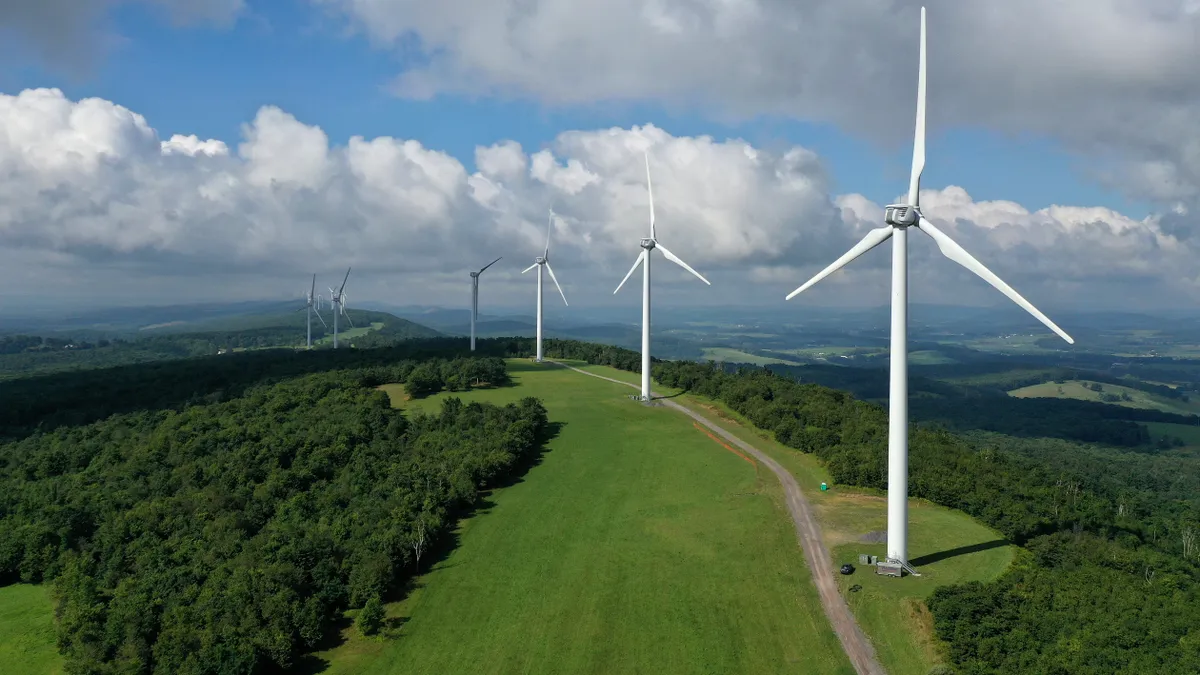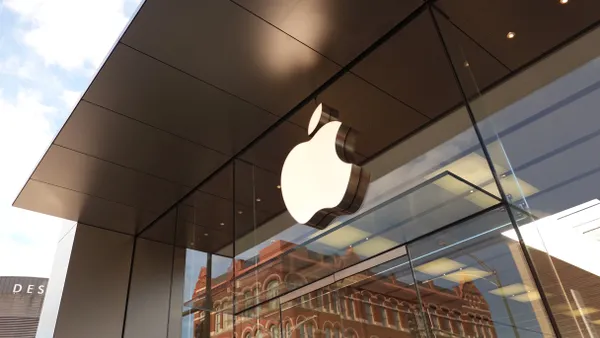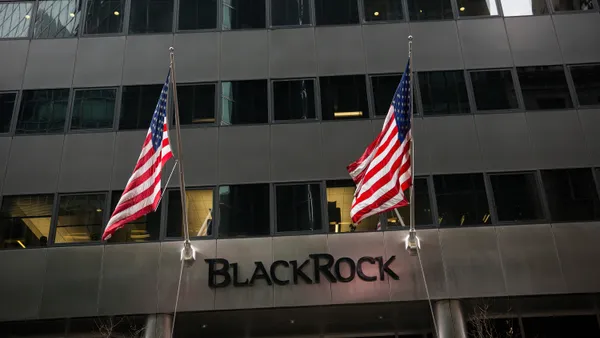Dive Brief:
- Morningstar evaluated the ESG commitment level of 108 asset managers across the globe, with 45 based in the U.S., to help investors identify firms’ dedication to delivering sustainability outcomes, according to its fourth annual report published in August.
- Of the firms that were also evaluated last year, four advanced and one was demoted in their ratings, which range from “Low” to “Leader” on Morningstar’s four-degree scale. Morningstar, however, added 15 new asset managers to its roster, which helped boost the number of firms ranked “Advanced” from 17 last year to 21 in 2023.
- The report comes on the heels of asset management firms such as BlackRock and Vanguard approving fewer environmental and social proposals in 2023.
Dive Insight:
Morningstar’s ESG Commitment Level report provides investors insight into a firm’s sustainable-investing philosophies, ESG framework and application, resources and stewardship ventures, as they assess whether a firm’s goals align with theirs.
Three U.S.-based firms receiving an upgrade: Wellington Management and Brown Advisory were promoted to “Advanced” from “Basic” and Franklin Templeton jumped to “Basic” from “Low.”
“2023, but also the second half of 2022, has seen some asset managers really reviewing their own internal sustainability programs,” Morningstar’s associate director of sustainability research and lead author of the report, Alyssa Stankiewicz, said in a call with ESG Dive. “That’s led to either stronger conviction in those efforts and stronger resourcing to try to drive a competitive edge through those efforts or, in some cases, firms are downplaying or revising downward [when it comes to] their sustainability commitments.”
As evidenced by Morningstar’s most recent findings, not all changes in ESG ratings experienced an upward trajectory: UBS Asset Management fell to “Basic” from “Advanced,” a decline Stankiewicz attributes mainly to the acquisition of Credit Suisse, especially as the bank’s own sustainability program was not as far along as the one maintained by UBS.
“It’s also just a reflection of the time that it takes for two firms of that size to come together, culturally,” Stankiewicz said.
Out of the 108 firms surveyed, just eight qualified for Morningstar’s top designation of “Leader,” and only three were U.S.-based asset managers. Despite having a prominent presence in the ESG landscape, BlackRock and Vanguard — the nation’s two largest asset management firms — maintained positions in the lower tiers of “Basic” and “Low,” respectively.
Recently, Vanguard approved just 2% of environmental and social shareholder proposals for its U.S. portfolio companies during the 2023 proxy year, down from 12% in 2022, according to a company report released in August. The firm’s approval rating was similar to BlackRock’s, which also reported supporting a smaller percentage of environmental and social proposals in 2023.
The decline in support for ESG-focused proposals from the two firms comes after months of accelerating pushback and criticism from some members of the GOP. In August 2022, 19 Republican state attorneys general penned a joint letter to BlackRock, stating the asset manager was not doing its fiduciary duty when using “the hard-earned money of [the] states’ citizens” to forward its “climate agenda” and not prioritizing financial returns. Shortly after, multiple Republican-led states such as Florida, Missouri and Louisiana divested money from BlackRock due to its ESG investment practices.
However, merging ESG investment practices with politics only adds to the confusion for investors, according to Stankiewicz.
“Conflating ESG investing with woke investing . . . can lead to a lot of confusion for investors who are still trying to understand the difference between financially material ESG risks and preferences or impact,” said Stankiewicz. The assumption of ESG being part of one political party's platform and therefore against another limits investors in making financial choices, she added.












